Farts. Flatulence. Toots. Passing gas. We all do it, but very few of us are bold enough to step up and say, “Yep, I made that, and I’m proud of it.” We would rather die of embarrassment than have someone discover that we actually let one go and some of us have come up with rather ingenious ways to disguise the fact that we’re human, and that humans fart. Can you imagine anything more embarrassing that thinking you got away with releasing an SBD (Silent But Deadly) one into the room and getting busted by a buddy asking you what crawled up your ass and died? Good times.
The thing about farts is that no two episodes of flatulence are exactly alike. Each one is different, depending on the foods a person has eaten and his or her body chemistry. (Have you ever noticed that your own farts smell OK, while someone else’s always smell kinda rank?) A fart smells because of the amount of sulfur-producing material you consume. Meat, eggs, and cauliflower are common examples of foods that tend to produce stinky farts, whereas beans don’t tend to be responsible for ones that irritate the nose.

Why Do Farts Smell Like Chinese Food
1 Megan Fox’s Theory
 This one makes about as much sense as anything else, so here goes. The actress stated, “If you eat Chinese food, your farts come out like Chinese food. If you eat Mexican food, your farts come out like Mexican food. And milk, it’s like—you can smell the warmth in the fart. My wardrobe on Transformers always smells like farts, and I have no idea why.” The last part was a bit too much information, but if you have just finished eating Chinese food and you fart, you may have Chinese food on the brain, so everything is going to smell like Chinese food. At least according to Megan Fox, who we know wouldn’t steer us wrong.
This one makes about as much sense as anything else, so here goes. The actress stated, “If you eat Chinese food, your farts come out like Chinese food. If you eat Mexican food, your farts come out like Mexican food. And milk, it’s like—you can smell the warmth in the fart. My wardrobe on Transformers always smells like farts, and I have no idea why.” The last part was a bit too much information, but if you have just finished eating Chinese food and you fart, you may have Chinese food on the brain, so everything is going to smell like Chinese food. At least according to Megan Fox, who we know wouldn’t steer us wrong.
2 Digestive System Bacterial Soup
When you eat something, the food moves through your stomach and into your digestive system. It is pushed into your intestines. These are not simply empty tubes, but are packed with bacteria that play a role in digestion.
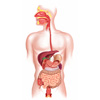 The bacteria help the body to break down the food more efficiently. As they get on with this important and necessary work, the bacteria produce gas as their own waste product. When the food breaks down, it also produces its own gaseous cocktail of hydrogen, carbon dioxide, and methane. Fart gas also includes some oxygen and nitrogen from air that we swallow, which makes sense.
The bacteria help the body to break down the food more efficiently. As they get on with this important and necessary work, the bacteria produce gas as their own waste product. When the food breaks down, it also produces its own gaseous cocktail of hydrogen, carbon dioxide, and methane. Fart gas also includes some oxygen and nitrogen from air that we swallow, which makes sense.
The Chinese food fart smell comes from the work performed by the bacteria in your intestines. Those little guys create substances that are just dripping in sulphur, called mercaptans. The mercaptans and the nitrogen content combine to produce another type of gas, called hydrogen hydrogen sulphide, which gives a certain je ne sais quois to the aroma of the flatulence.
More Fart Facts You Need to Know
1 Stinky Fart-Producing Foods
 If you want to avoid the problem of stinky farts, stay away from red meat, cabbage, and eggs. They tend to wind up creating a major stink-fest in your digestive system. Beans get a bad rap for creating farts, but they don’t tend to be really bad on the stink-o-meter.
If you want to avoid the problem of stinky farts, stay away from red meat, cabbage, and eggs. They tend to wind up creating a major stink-fest in your digestive system. Beans get a bad rap for creating farts, but they don’t tend to be really bad on the stink-o-meter.
2 Why Farts Make Noise
 The tell-tale sound that the passing of gas makes is due to vibrations of the anal opening. The amount of sound depends on a couple of factors: the tightness of the sphincter and the velocity of the escaping gas.
The tell-tale sound that the passing of gas makes is due to vibrations of the anal opening. The amount of sound depends on a couple of factors: the tightness of the sphincter and the velocity of the escaping gas.
3 Normal Amount of Farting Per Day
 Studies have shown that the average person farts about 14 times per day and passes about half a liter of gas in a 24-hour period. This may sound like a lot but try counting for yourself to test out your own toots.
Studies have shown that the average person farts about 14 times per day and passes about half a liter of gas in a 24-hour period. This may sound like a lot but try counting for yourself to test out your own toots.
Some Tootin’ Trivia
1 Space Fart Fact
 This is from the don’t try this at home file: If you could go into space without a protective suit (and we know that is not a good idea) and you let a really good one rip (because how often do you get to cut the cheese in space), your sphincter burst would generate enough pressure to propel you forward.
This is from the don’t try this at home file: If you could go into space without a protective suit (and we know that is not a good idea) and you let a really good one rip (because how often do you get to cut the cheese in space), your sphincter burst would generate enough pressure to propel you forward.
[contact]
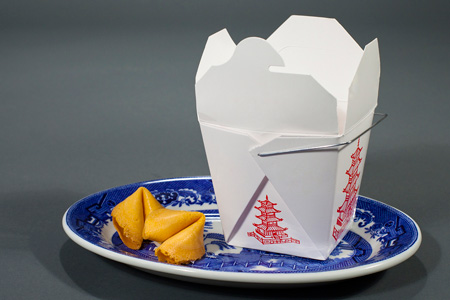
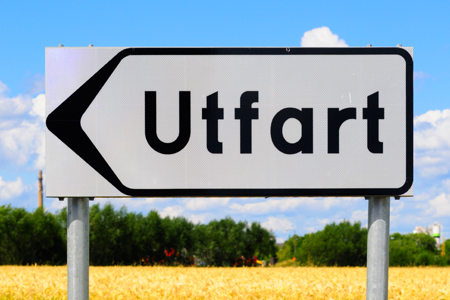

 The first step you should take is to open all of the windows in the space. Opening all of the windows within a room will allow a channel of fresh air to sweep through the room and freshen the space. Once you feel that all of the flatulence has passed, it will be safe to closed the windows again.
The first step you should take is to open all of the windows in the space. Opening all of the windows within a room will allow a channel of fresh air to sweep through the room and freshen the space. Once you feel that all of the flatulence has passed, it will be safe to closed the windows again.  There exist a range of deodorizing product sprays for cover up the smell of farts. If you find that your farts have been especially frequent you may wish to carry a deodorizing product spray until the episode of flatulence has passed. Product sprays such as Febreze and Oust can be purchased at any supermarket or drug store. Simply spray the deodorizing mist within the air and provide 5-10 seconds for the smell to go away.
There exist a range of deodorizing product sprays for cover up the smell of farts. If you find that your farts have been especially frequent you may wish to carry a deodorizing product spray until the episode of flatulence has passed. Product sprays such as Febreze and Oust can be purchased at any supermarket or drug store. Simply spray the deodorizing mist within the air and provide 5-10 seconds for the smell to go away. The use of lemon juice can have a powerful effect on eliminating the smell of lemon juice within a room. The citric acid within the spray cuts through the stale fart smell and replaces it with the fresh aroma of lemons. Mix a solution of one part lemon juice with three parts water inside a generic spray bottle, and proceed to spray down the room.
The use of lemon juice can have a powerful effect on eliminating the smell of lemon juice within a room. The citric acid within the spray cuts through the stale fart smell and replaces it with the fresh aroma of lemons. Mix a solution of one part lemon juice with three parts water inside a generic spray bottle, and proceed to spray down the room. This preventable solution can assure that no fart odor ever develops within a room. if you feel the need to fart, simply take a step outside and let it rip. Though this action requires you to take a break from what you are doing, everyone can use a break and a fresh breath of air in the outdoors.
This preventable solution can assure that no fart odor ever develops within a room. if you feel the need to fart, simply take a step outside and let it rip. Though this action requires you to take a break from what you are doing, everyone can use a break and a fresh breath of air in the outdoors. There are several known foods that can lead to an increase in flatulence. If you find that you have a regular problem of needing to fart, you may consider decreasing your consumption of proteins like beans, eggs and meats. Taking this simple step can save yourself several trips to the outdoors and assure that you can go anywhere without worries of flatulence.
There are several known foods that can lead to an increase in flatulence. If you find that you have a regular problem of needing to fart, you may consider decreasing your consumption of proteins like beans, eggs and meats. Taking this simple step can save yourself several trips to the outdoors and assure that you can go anywhere without worries of flatulence. If farting is a regular problem, the use of a activated charcoal filled pad on the seat can be effective at absorbing your farts before spreading throughout the room. These seat cushions are reasonably affordable and can be highly effective at making sure that any and all farts performed while sitting down remain undetected.
If farting is a regular problem, the use of a activated charcoal filled pad on the seat can be effective at absorbing your farts before spreading throughout the room. These seat cushions are reasonably affordable and can be highly effective at making sure that any and all farts performed while sitting down remain undetected.

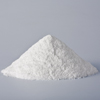 This household substance is fantastic at drawing out the long-lasting effects left from farting within your seat. Sprinkle high qualities of this powder over your seat at the end of the day and allow for it to set in over night. When you return in the morning, simply brush the powder off and enjoy a freshened seat. If it is not effective after one night, repeat the process the following night.
This household substance is fantastic at drawing out the long-lasting effects left from farting within your seat. Sprinkle high qualities of this powder over your seat at the end of the day and allow for it to set in over night. When you return in the morning, simply brush the powder off and enjoy a freshened seat. If it is not effective after one night, repeat the process the following night.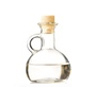 This household cleaning formula that works wonders at getting deep within chair upholstery and breaking down odors. Mix a solution of one part white vinegar and three parts water. Heavily spray down the entire seat during the end of the day and allow the night for the formula to air dry.
This household cleaning formula that works wonders at getting deep within chair upholstery and breaking down odors. Mix a solution of one part white vinegar and three parts water. Heavily spray down the entire seat during the end of the day and allow the night for the formula to air dry. This party drink can double as a household deodorant. After pouring the vodka within a spray bottle, mist down the upholstery within the chair to neutralize unwanted fart aromas. Due to the alcohol content, this liquid will quickly evaporate and leave the chair smelling fresh.
This party drink can double as a household deodorant. After pouring the vodka within a spray bottle, mist down the upholstery within the chair to neutralize unwanted fart aromas. Due to the alcohol content, this liquid will quickly evaporate and leave the chair smelling fresh.
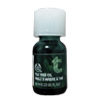 This homeopathic oil works well at breaking down unpleasant upholstery odors. Mix one part tea tree oil with three parts water and pour within a spray bottle. Mist heavy quantities of this mixture on the upholstery, and allow the moisture to air dry over night.
This homeopathic oil works well at breaking down unpleasant upholstery odors. Mix one part tea tree oil with three parts water and pour within a spray bottle. Mist heavy quantities of this mixture on the upholstery, and allow the moisture to air dry over night.